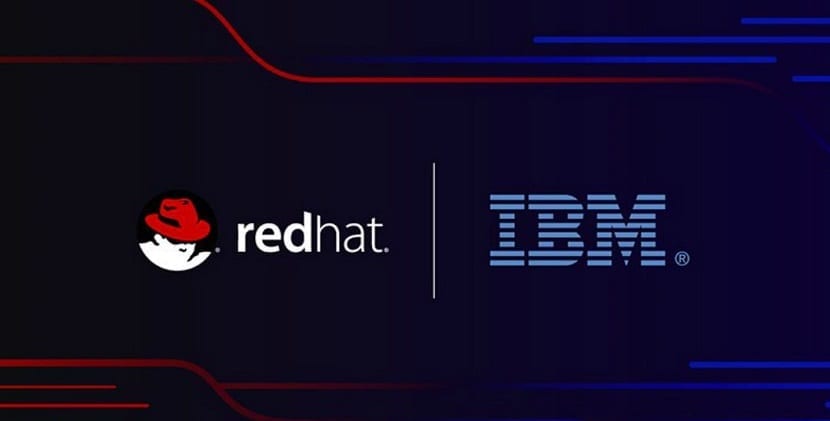
Last year the news of the purchase of Red Hat by IBM was one of the most talked about for a long time, because this news divided the distribution community and not only from it but also generated many opinions, discontent, criticism and reactions of all kinds on the network.
Since after the acquisition, IBM announced that Red Hat will become an independent entity on the IBM hybrid cloud team. This should serve to preserve the open source nature of Red Hat.
And it was finally announced the liquidation of all procedures and the official completion of the transaction from Red Hat to IBM.
Therefore, large open source software company now becomes an IBM business unit Within its hybrid cloud division, as the company's CEO, Jim Whitehurst will join IBM's management team.
The agreement was agreed at the level of the antitrust services of the countries where the companies are registered, as well as of the shareholders and boards of directors.
The Red Hat purchase is official and done
The deal amounted to approximately $ 34 billion, estimated at $ 190 per share (Red Hat's share value is now $ 187 and at the time of the announcement of the transaction it was $ 116).
Red Hat will continue to operate as an independent and neutral unit in the IBM Hybrid Cloud group, and will maintain all previously established partnerships.
The new division will be led by Jim Whitehurst, who has served as the head of Red Hat, and the current Red Hat management team.
Red Hat brand items will be saved, IBM and Red Hat plan to launch a next-generation hybrid platform for Linux and Kubernetes-based cloud systems. This platform is expected to enable the company to become the largest provider of hybrid cloud systems.
Red Hat will remain independent and operate as a distinct unit within the IBM Hybrid Cloud team.
A hybrid cloud is an integrated service that uses clouds, both its own and those of third parties, to solve different functions within an organization.
Acquisition positions IBM as the leading hybrid cloud provider and accelerates IBM's high-value business model, extending Red Hat's open source innovation to a broader range of customers
Red Hat's unwavering commitment to open source remains unchanged.
Together, IBM and Red Hat to Deliver Next-Generation Multi-Cloud Hybrid Platform
Meanwhile IBM argues that it will retain Red Hat's open development model and will continue to support the community around Red Hat products.
As will continue to participate in various open source projects, whose development was involved in the Red Hat company. Additionally, IBM and Red Hat will continue to defend the interests of free software, providing patent protection and the ability to use their patents in open source software.
The Red Hat partnership with IBM will help to reach a new level of development and attract additional resources to increase the influence of open source software and will also provide the opportunity to bring Red Hat technology to a wider audience.
This will maintain the commitment to Red Hat's corporate culture and open source development model. The company will continue to dominate values such as cooperation, transparency of processes and meritocracy.
The Fedora project leader assured the community that the mission, management model, and goals of the project remain the same.
Red Hat will continue to participate in the development of upstream projects, just as it has done before. No changes are anticipated, including Fedora developers who are Red Hat employees will continue to work on previous projects, and sponsorship of all previously supported projects will continue.
Source: https://www.redhat.com/